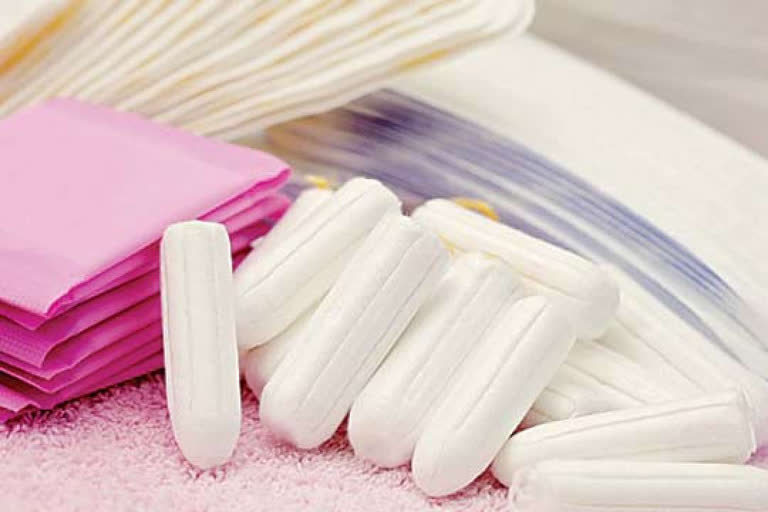Hyderabad: The impact of COVID-19 lockdown has affected women disproportionately. The pandemic exacerbated the prevalent challenges related to menstruation. Women faced enormous difficulty to procure sanitary napkins as it didn’t make it to the list of essential items until March 30th, which was seven days after the country went into a complete lockdown.
Another problem which predates the pandemic but has also come to the forefront in recent times is the safe disposal of sanitary napkins. While India has made concerted efforts to make progress in encouraging openness in how menstruation is discussed and in making hygiene products more accessible, little has been done to work on the handling of used menstrual products, which continues to be a matter of taboo.
A study conducted by Muse Foundation in Thane slums showed that 71% of women use disposable sanitary napkins (DSNs) and at least 45% deposit their sanitary waste in public toilets as there were no dustbins available. If we add up the distress of procurement of menstrual hygiene products to disposal of these used sanitary napkins and cloth pads during the pandemic, the results are alarming. It not only reflects how acute the situation has been for women but also how poor waste management contributes to contamination and spread of the disease.
Also read: Menstrual Hygiene Day: Railways distributes sanitary pads to women on Shramik trains in UP
Globally there is growing attention towards incorporating menstrual hygiene management into a humanitarian response but one of the key elements that are often missed is the upkeep of menstrual material disposal and waste management. It is estimated that solid waste generation in India is 63 million tonnes per year where 353 million women generate 44, 125 million kilos of menstrual waste.
The Solid Waste Management (SWM) Rules, 2016 recommend transfer and treatment of all menstrual waste in large-scale biomedical waste incinerators. However, in order to implement the law, it is important to create a sustainable chain of segregation, collection and transportation. It can start with households using separate segregation paper bag that eases the job of waste pickers when they segregate the trash that is discarded. This prevents them from lying in dump yards or getting incinerated which can emit dangerous carcinogens.
Financial Inclusion Improves Sanitation and Health (FINISH) Society conducted a study across 243 menstruating women from Tier 1, 2 and 3 cities of India and concluded that 68% of the total population used non-biodegradable pads, while 24 per cent used sanitary napkins that were compostable.
Studies have shown that it could take from 500 to 800 years for one sanitary pad to decompose as the plastic used in most sanitary napkins are non-biodegradable and is causing grave health and environmental hazard. Most women dispose of their used menstrual products into domestic solid waste or garbage bin that ultimately become a part of solid wastes. UNICEF studies suggest that the disposal of menstrual hygiene materials is often overlooked, to the detriment of both girls and the facilities. In the event that there is a lack of alternative disposal options, menstruating women often dispose of used menstrual material in toilets which may clog vacuum hoses during desludging of septic tanks.
Shift to safer, environment-friendly sanitary products are not only a function of willingness to shift but also the awareness and accessibility or affordability of alternatives. It is therefore imperative to make a concerted effort to crowdsource innovative and viable solutions for this pressing problem. It could be by way of monitoring usage of toilets, triggering behaviour change, finding technological solutions for safe disposal and early decomposition of menstrual waste. It is also important to invest in innovative mobile technology to support low-cost, rapid-turnaround surveys monitoring key health and development indicators of Menstrual Health Management.
Also read: 52% of the women in rural areas don't use sanitary pad
Since 2000, India’s legislation on Solid Waste Management (SWM) has been in place and pertinent changes have been made to accommodate emerging disposal technologies, composting, strengthening capacities of urban local bodies for segregation, recycling and reuse of waste. But today while the world is grappling with a pandemic and safe disposal of contaminated and hazardous products have become of utmost importance, it is necessary to create an enabling environment for new-age, tech-driven solutions for menstrual waste management in the country.



